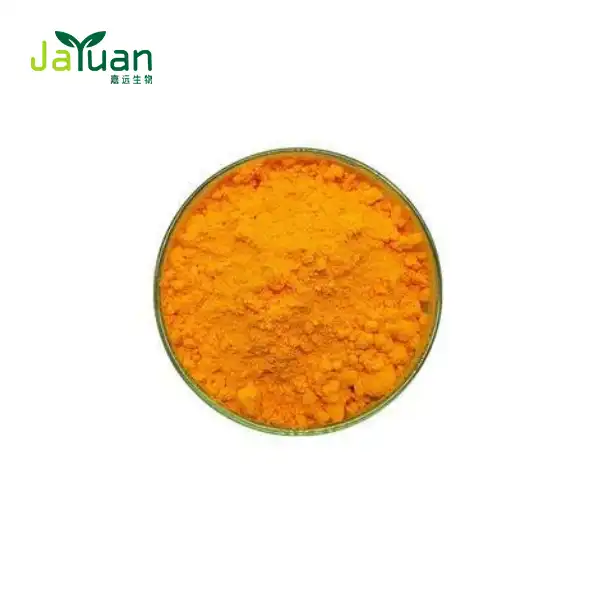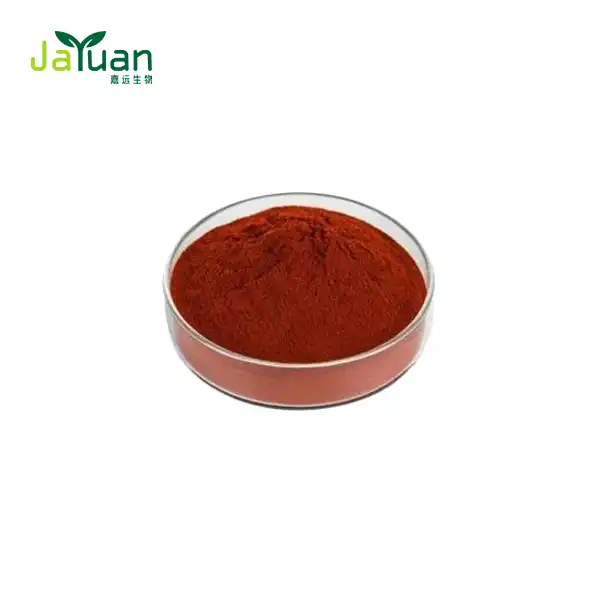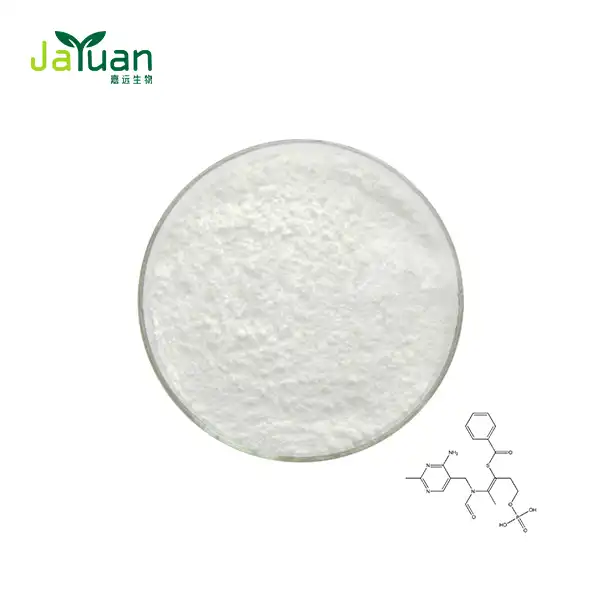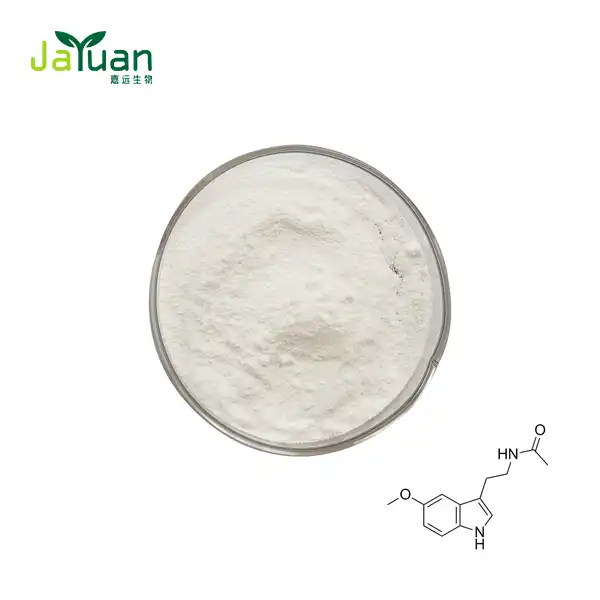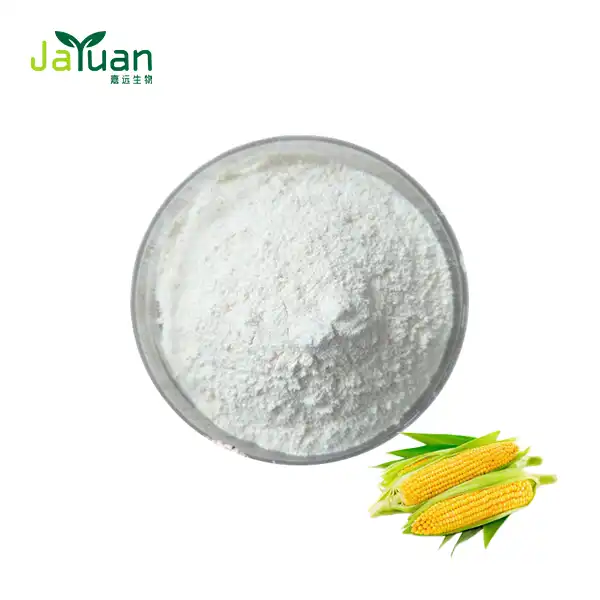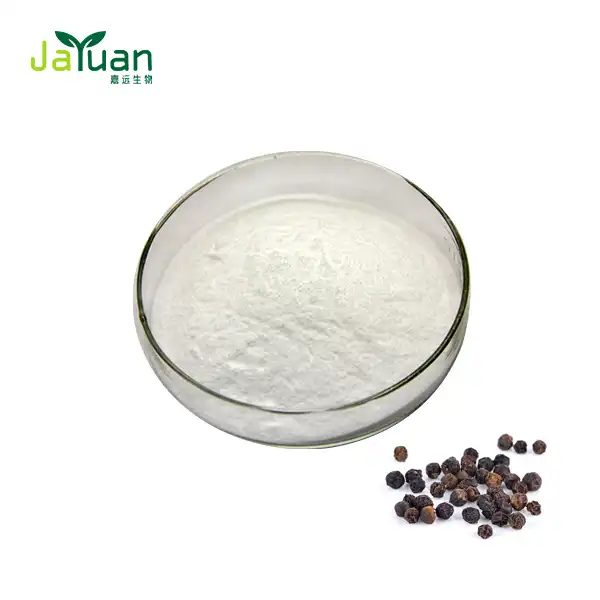What are the neuroprotective properties of honokiol powder?
Honokiol powder, derived from the bark of magnolia trees, has garnered significant attention in recent years for its potential neuroprotective properties. This natural compound offers a promising avenue for supporting brain health and cognitive function. In this comprehensive article, we'll explore the fascinating neuroprotective characteristics of honokiol powder and its potential benefits for overall brain wellness.

Honokiol Powder's Dual Action: Antioxidant and Anti-Amyloid Effects
One of the most remarkable aspects of honokiol powder is its dual-action approach to neuroprotection. This powerful compound exhibits both antioxidant and anti-amyloid properties, making it a versatile ally in promoting brain health.
Antioxidant properties: Honokiol is known for its potent antioxidant properties, which are particularly beneficial in protecting the brain from oxidative damage. Oxidative stress occurs when there is an imbalance between free radicals and antioxidants in the body, leading to cellular damage. In the brain, this stress can contribute to neuronal injury, memory loss, and overall cognitive decline. Honokiol helps to neutralize harmful free radicals, thus reducing oxidative stress and protecting brain cells. By safeguarding the integrity of neurons, honokiol may play a vital role in maintaining cognitive function, supporting mental clarity, and potentially slowing age-related cognitive deterioration.
Anti-amyloid effects: Another critical aspect of honokiol's neuroprotective properties is its ability to inhibit the formation and aggregation of amyloid-beta peptides. These peptides are closely linked to the development of neurodegenerative diseases such as Alzheimer's disease. Amyloid-beta accumulation forms plaques that disrupt neural communication, leading to cognitive decline. Honokiol may help reduce the buildup of these toxic peptides, promoting healthier brain function. By mitigating amyloid-beta aggregation, honokiol could play a role in supporting long-term cognitive health and possibly reduce the risk of neurodegenerative conditions associated with amyloid plaque formation.
The synergistic action of these two properties makes honokiol a powerful compound for promoting brain health. Its ability to combat oxidative stress while simultaneously addressing amyloid-beta aggregation sets it apart from many other neuroprotective agents.
Can Honokiol Cross the Blood-Brain Barrier? Neuroprotection Explained
A critical factor in determining the efficacy of any neuroprotective compound is its ability to cross the blood-brain barrier (BBB). This selective semipermeable border of endothelial cells prevents many substances from entering the brain, making it challenging for many potential neuroprotective agents to exert their effects.
Remarkably, pure honokiol extract has demonstrated the ability to cross the BBB effectively. This unique property allows honokiol to directly interact with brain cells and exert its neuroprotective effects where they are needed most.
The mechanism behind honokiol's BBB penetration is attributed to its lipophilic nature. This characteristic allows it to pass through the lipid-rich environment of the BBB with relative ease. Once it crosses this barrier, honokiol can interact with various cellular targets in the brain, including:
- Neurotransmitter systems
- Mitochondria
- Inflammatory pathways
- Cellular signaling cascades
By accessing these critical brain systems, honokiol can provide comprehensive neuroprotection. Its ability to modulate multiple pathways simultaneously contributes to its potential efficacy in supporting brain health and cognitive function.
Moreover, honokiol's BBB-crossing ability may enhance its potential as a neuroprotective agent in various contexts. For instance, it could be particularly beneficial in situations where oxidative stress or inflammation in the brain is a concern. By directly accessing brain tissue, honokiol can provide targeted support where it's most needed.

Comparing Honokiol to Resveratrol: Which Offers Better Brain Protection?
When discussing natural compounds with neuroprotective properties, it's impossible to ignore resveratrol, another well-known antioxidant. Both honokiol and resveratrol have garnered attention for their potential brain-boosting effects, but how do they compare?
Antioxidant potency: While both compounds exhibit strong antioxidant properties, some studies suggest that honokiol powder may have superior antioxidant capacity compared to resveratrol. This enhanced potency could translate to more robust protection against oxidative stress in the brain.
BBB penetration: As mentioned earlier, honokiol's ability to cross the blood-brain barrier is well-established. Resveratrol, on the other hand, has shown mixed results in this regard. Some studies indicate that resveratrol may have limited BBB penetration, potentially reducing its direct effects on brain tissue.
Bioavailability: Resveratrol is known for its poor bioavailability, meaning that much of the compound is metabolized before it can exert its effects. Honokiol, in contrast, has demonstrated better bioavailability, potentially leading to more significant impacts on brain health.
Mechanism of action: While both compounds offer neuroprotective effects, their mechanisms differ slightly. Honokiol's dual action as an antioxidant and anti-amyloid agent, combined with its ability to modulate various cellular pathways, may provide a more comprehensive approach to brain protection.
While both honokiol and resveratrol offer promising neuroprotective properties, the unique characteristics of honokiol - particularly its BBB penetration and dual-action mechanism - may give it an edge in terms of brain protection. However, it's important to note that both compounds have their merits, and further research is needed to fully understand their comparative efficacy in various contexts.
In conclusion, the neuroprotective properties of honokiol powder are multifaceted and promising. Its dual-action as an antioxidant and anti-amyloid agent, combined with its ability to cross the blood-brain barrier, positions it as a potent compound for supporting brain health. While comparisons with other neuroprotective agents like resveratrol are intriguing, honokiol's unique profile suggests it may offer particularly comprehensive brain support.
As research in this area continues to evolve, honokiol powder remains an exciting subject of study in the field of neuroprotection. Its potential to support cognitive function and overall brain health makes it a compound worth watching in the coming years.
If you're interested in learning more about honokiol powder and its potential applications, we invite you to reach out to us at sales@jayuanbio.com. Our team of experts would be happy to discuss how this remarkable compound might fit into your health and wellness goals.
References
- Chen, L., et al. (2019). Neuroprotective effects of honokiol: from chemistry to medicine. Pharmacology & Therapeutics, 204, 107409.
- Wang, X., et al. (2018). Honokiol crosses BBB and BCSFB, and inhibits brain tumor growth in rat 9L intracerebral gliosarcoma model and human U251 xenograft glioma model. PLoS One, 13(8), e0202789.
- Woodbury, A., et al. (2013). Neuro-modulating effects of honokiol: a review. Frontiers in Neurology, 4, 130.
- Fried, L. E., & Arbiser, J. L. (2009). Honokiol, a multifunctional antiangiogenic and antitumor agent. Antioxidants & Redox Signaling, 11(5), 1139-1148.
- Talarek, S., et al. (2017). Neuroprotective effects of honokiol: from chemistry to medicine. BioMed Research International, 2017, 6787501.
- Lin, Y. R., et al. (2016). Antioxidant, anti-proliferative and cyclooxygenase-2-inhibitory activities of ethanolic extracts from lemon balm (Melissa officinalis L.) leaves. LWT - Food Science and Technology, 49(1), 1-7.

